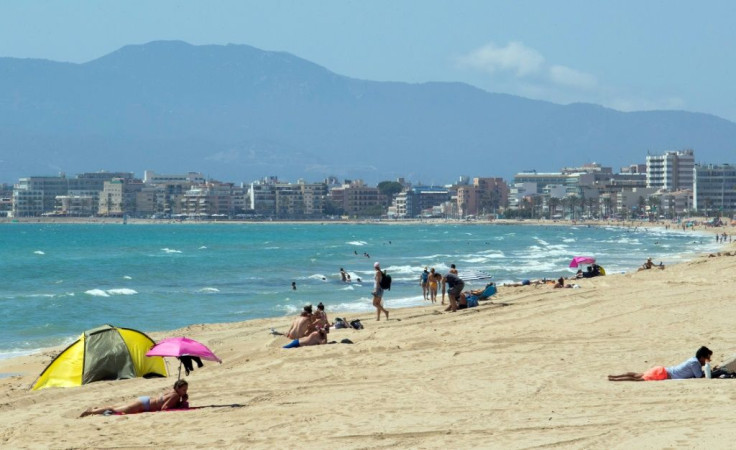Firms Hope For Post-pandemic Profits From 'Digital Nomads'
Companies around the world are betting that spiking interest in working from abroad during the pandemic will prove the foundation for a profitable new sector that can thrive in the years ahead.
"Covid has sped things up, what used to be a niche has become the norm," says Emmanuel Guisset, whose firm Outsite rents slots in shared living and working spaces to so-called "digital nomads" from Portugal to Hawaii.
He calls the pandemic a "springboard" for his business, one in a whole web of companies offering highly-mobile online workers everything from coworking spaces to Instagrammable villas and training to ease them into their new way of life.
Although it had to close its properties in the first months of the coronavirus outbreak, Outsite enjoyed a 30-percent increase in reservations compared with 2019 and masses of new users.
"When things are back to normal, it's going to explode," Guisset predicts.
Crucially, employers are increasingly open to the idea, with around 20 companies contacting Guisset to arrange paid-for stays for their workers -- "a way of hanging on to talented employees," he says.
"The million dollar question" for the budding sector is whether such openness at workplaces will outlive pandemic restrictions, says Professor Maurie Cohen of the New Jersey Institute of Technology.
Living in Outsite's Lisbon space since last autumn, Ambroise Debret has been chasing the digital nomad dream as a freelance web marketer for the past four years.

He sees the stay as a way to get to know others walking the same path -- saying "it's a bit as if we were all going to the office together".
Despite their footloose wanderings, such workers feel both "the need for a connection to the local and to belong to a community," says researcher Clement Marinos of France's University of Southern Brittany.
Debret even has a side hustle offering training in the lifestyle, saying he's seen growing interest with 24 signups in January.
"It's like an ecosystem, digital nomads are selling each other services and different kinds of trainings," says New Jersey researcher Cohen.
The good life and the opportunity to network are seen as vital draws for digital nomads by those in the lifestyle business.
Matthieu Zeilas, who set up Palma Coliving on Spain's Mallorca island last year, includes working space, a meditation nook and a swimming pool as well as workshops and networking events in the 850-euro ($1,025) per month price for a room.
With more than 200 reservation requests since the first of his multiple properties opened last August, "the pandemic has really opened up possibilities, we sense that we're responding to a real need," Zeilas says.
And by taking on Airbnb properties emptied of tourists by coronavirus restrictions, Zeilas believes he can help ease the pandemic pain for the local economy too.
But with the virus still raging, "some people have been released from being in particular places, but will they be able to travel?" Cohen asks.
© Copyright AFP {{Year}}. All rights reserved.





















